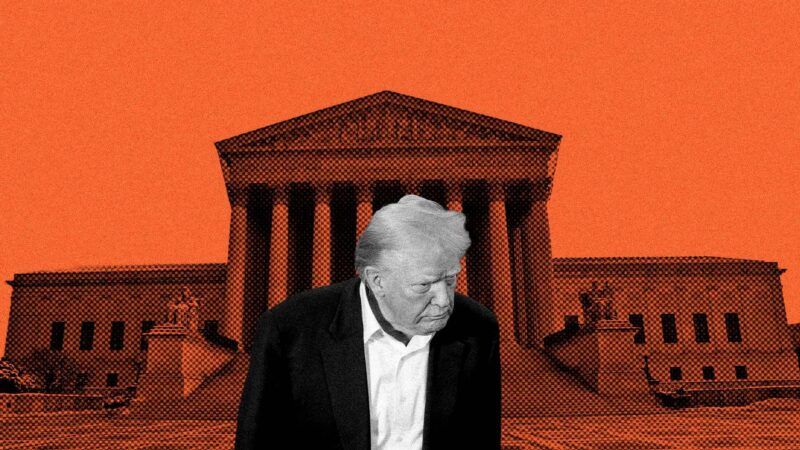'Federal Courts Have No Role To Play,' Trump Tells SCOTUS in Latest Deportation Case Filing
The Trump administration is desperate to avoid judicial review.

"That is the president's call alone; the federal courts have no role to play." So argued the Trump administration in a recent legal filing.* To call the administration's position a naked assertion of unchecked executive power would be a severe understatement.
To understand why, let's review how we got here. On April 7, the Supreme Court ruled 9-0 that if President Donald Trump wants to deport an alleged "alien enemy" under the terms of the Alien Enemies Act (AEA), then the deportee is first "entitled to 'judicial review' as to 'questions of interpretation and constitutionality of the Act.'"
It is that same judicial review that is now at issue in the administration's recent legal filing.
According to the Trump administration, the president has properly interpreted the Alien Enemies Act to allow him to deport aliens who are alleged to be members of the Venezuelan street gang Tren de Aragua.
Yet Trump's interpretation of the AEA is laughable on its face. According to the plain text of the Alien Enemies Act, it may only be invoked by the president "whenever there shall be a declared war between the United States and any foreign nation or government, or any invasion or predatory incursion shall be perpetrated, attempted, or threatened against the territory of the United States, by any foreign nation or government."
None of those textually mandated prerequisites have been satisfied here. There is no "declared war" with Venezuela and there is no "invasion or predatory incursion" by any "foreign state or government." The gang is not a foreign state and the gang's alleged crimes do not qualify as acts of war by a foreign state. There is zero textual support for Trump's use of the AEA.
Trump's lawyers likely understand this, which is probably why they are so desperate to avoid judicial review in the first place. After all, the administration is not exactly striding forth here with confident legal arguments on its side; rather, it is trying to dodge the courts by asserting that Trump's decision to invoke the AEA "is the president's call alone."
Such avoidance does make a certain sort of sense. The Trump administration has good reason to fear judicial review because when the courts have examined the text of the AEA alongside Trump's shady interpretation of it, Trump has lost big. In fact, that very thing happened just last week, when U.S. District Judge Fernando Rodriguez Jr. ruled that Trump's use of the AEA "exceeds the scope of the statute and is contrary to the plain, ordinary meaning of the statute's terms." And in case you're wondering, Rodriguez is no "Marxist judge." He was appointed to the federal bench in 2018 by none other than Trump himself.
In Marbury v. Madison (1803), the Supreme Court observed that it is "the province and duty of the judicial department, to say what the law is." Yet Trump is now asking the Supreme Court to shirk that duty so that Trump may interpret a federal law to mean something that it plainly does not mean. No self-respecting jurist should take him up on the offer.
CORRECTION: This article originally misstated the court in which the legal filing was submitted. It is the U.S. District Court for the District of Columbia.


Show Comments (178)